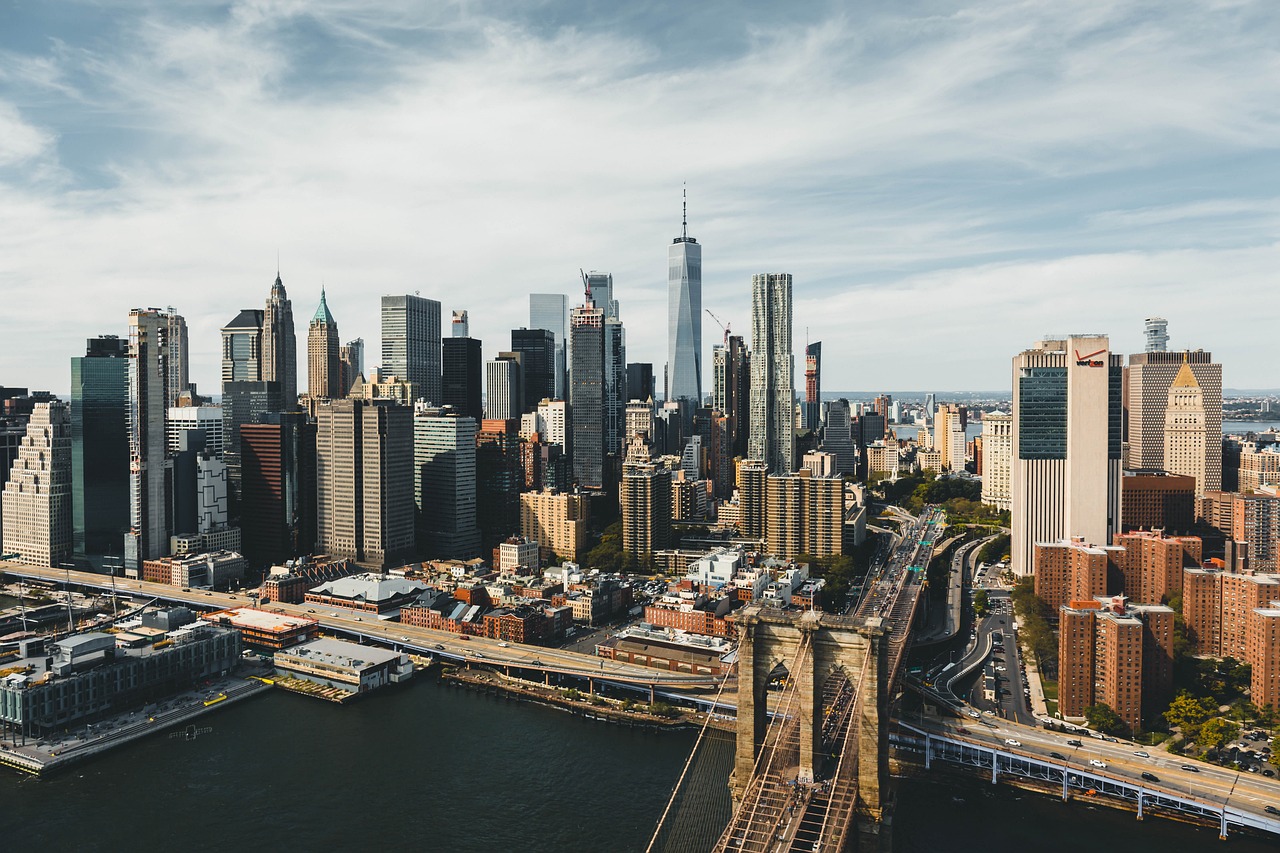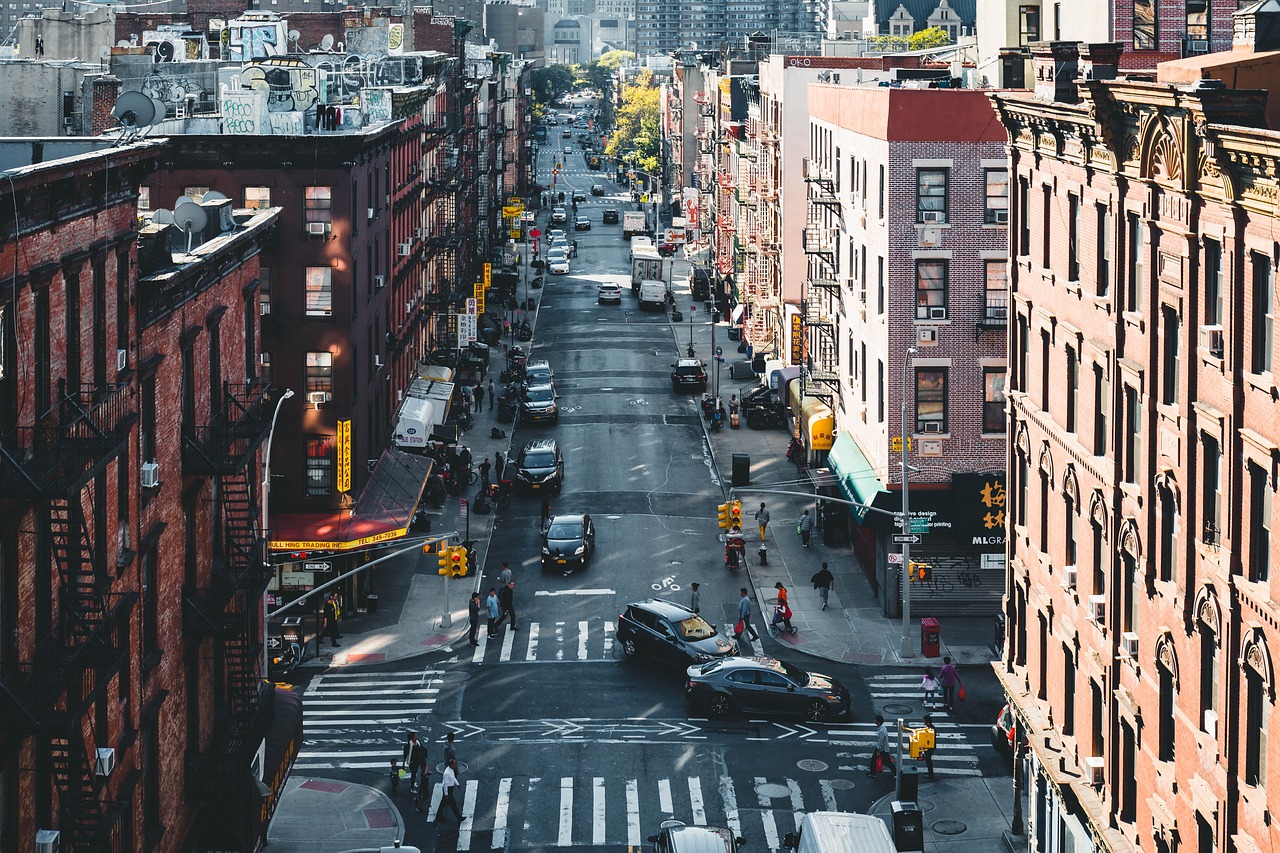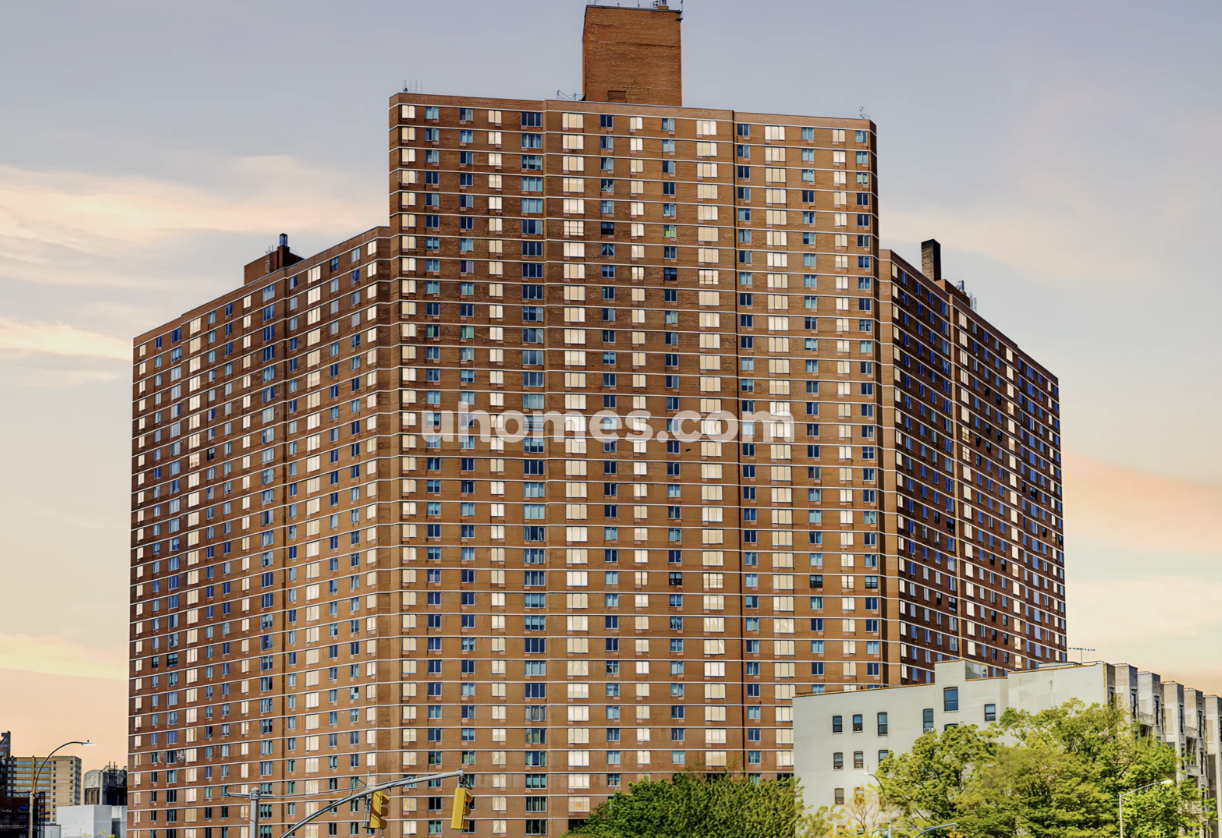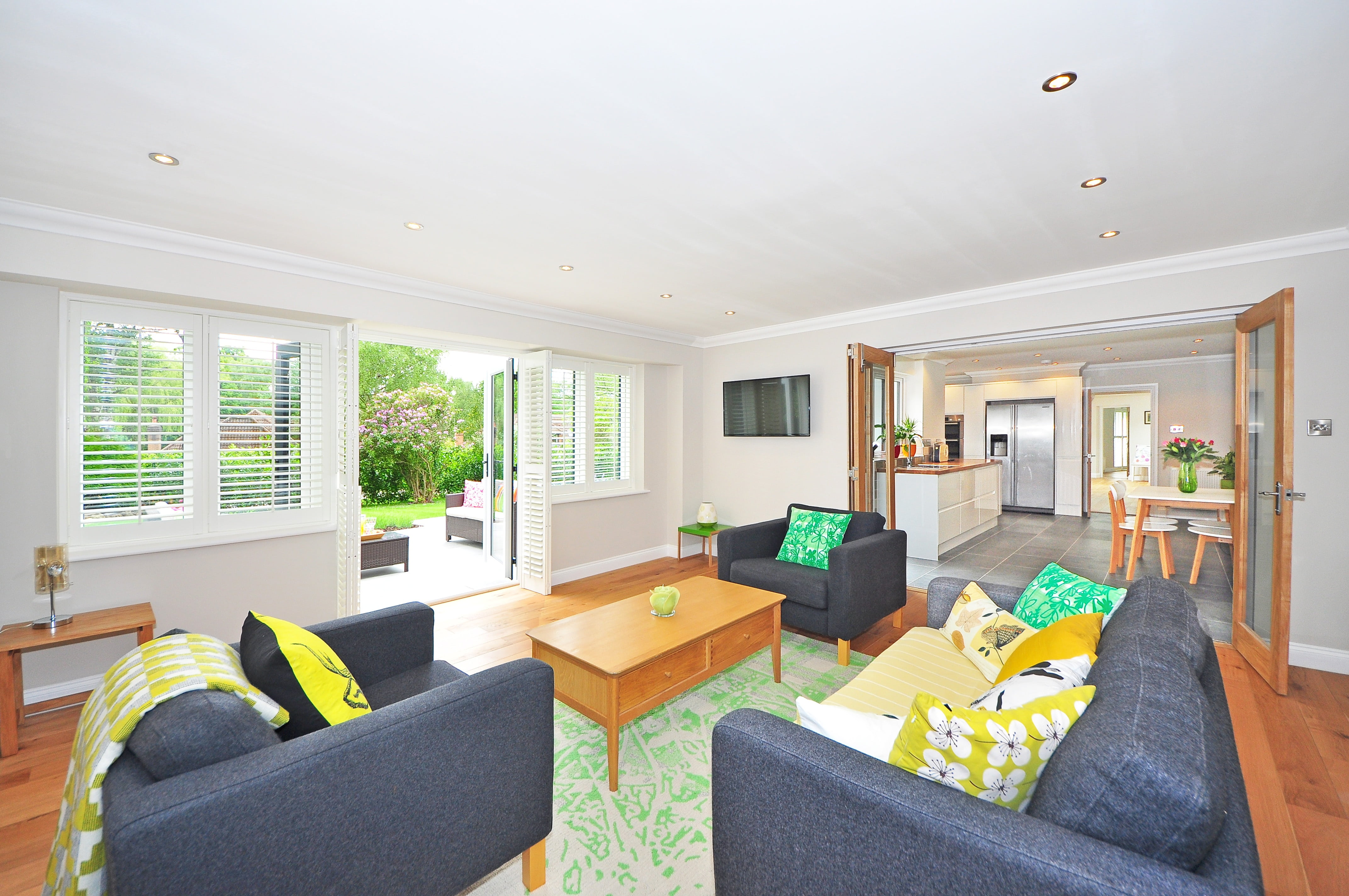How to find an apartment in NYC is a daunting question for many people. Not only does New York have a myriad of housing options, but it also has unique rental market rules and a complicated process that makes finding an apartment in NYC even more challenging. Whether you’re a newcomer to the city for the first time or a longtime resident looking for a change of scenery from your current digs, understanding how to find an apartment in New York that’s right for you is an important skill. We’ll take you through a comprehensive look at the process of finding an apartment in NYC, every step of the way, from the initial preparations to the final signing of the lease. We’ll share practical advice and tips to help you screen listings more efficiently, understand rent levels, identify the characteristics of different neighborhoods, and avoid common pitfalls and misconceptions. No matter what your budget is or what your specific needs are for living space, this guide will provide valuable information to give you the answer about how to find an apartment in New York that best meets your needs.
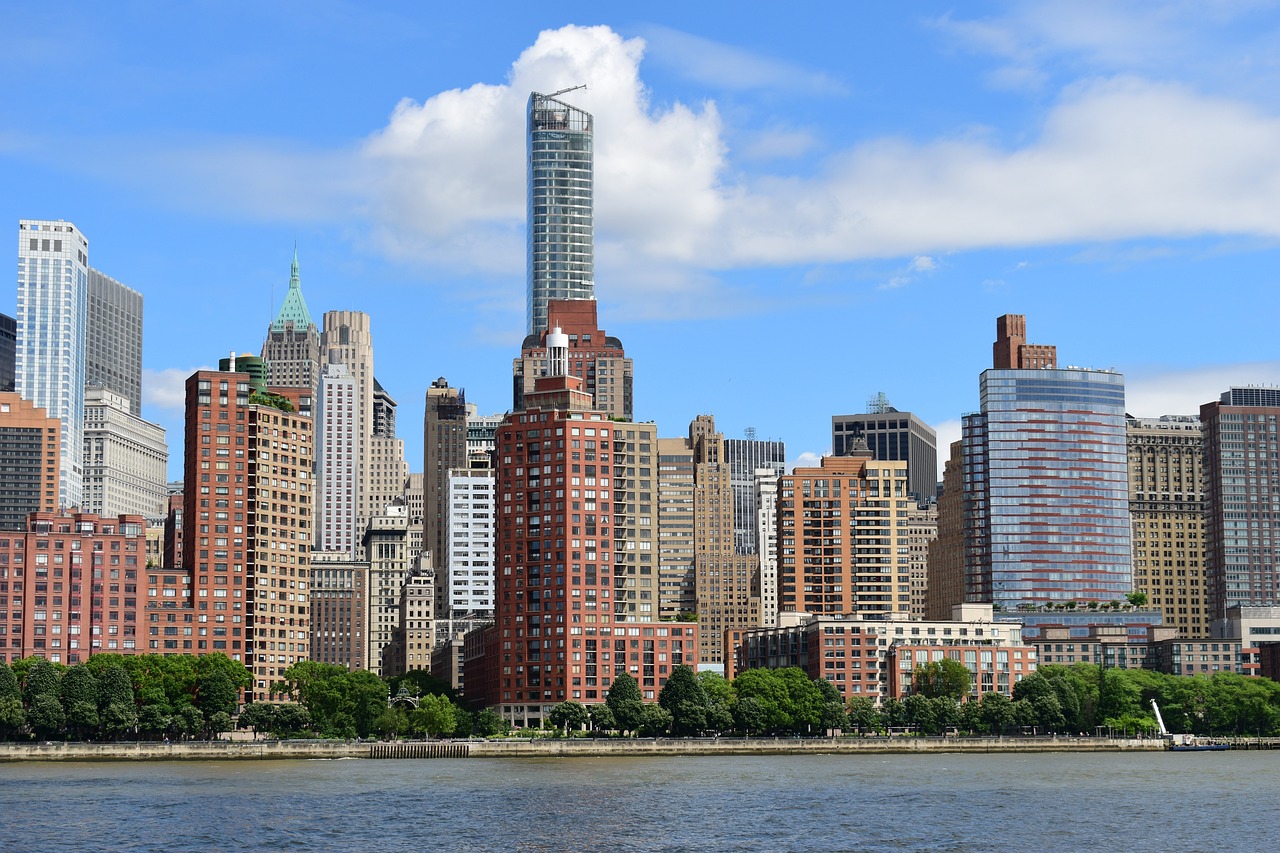
How to Find an Apartment in NYC: Following Steps
Step1 for How to Find an Apartment in New York: Set Your Budget
To answer how to search for apartments in NYC. Setting a budget is a critical first step to success. In this competitive rental market, clarifying your financial situation and setting a realistic budget can help you narrow down your options and avoid future financial stress. Here are some practical steps for setting a budget:
1. Evaluate income and expenses
First, you need to understand your income. This includes not only your monthly salary but also any additional sources of income. Housing cost is a large part of the cost of living in NYC. And you need to make a list of all your fixed expenses such as tuition fees, loan repayments, insurance costs and daily living expenses. Once you have clarified these expenses, you can calculate the amount of money you can spend on the house rent each month. It is recommended to keep the housing cost at around 30% of your income, to ensure that you have enough money for other living expenses after paying the rent.
2. Consider hidden costs
When setting a budget, there are some hidden costs that you need to consider in addition to rent. For example, utilities (e.g. electricity, water, gas), internet and TV costs, and monthly transportation costs. In addition, when renting for the first time, you may also need to pay a security deposit, moving costs, and agent fees. Incorporating these costs into your budget can help you more accurately assess the actual expenses of renting an apartment. uhomes.com offers apartment rent with utilities included, which can reduce your extra expenses.
3. Choose the right type of rental
The rental market in New York City offers a wide range of choices, including studios, single room in a flat, shared apartments and more. Depending on your budget, choose the right type of New York rental. If you have a limited budget, a shared apartment in NYC may be a good choice, not only can you share the rent with others, but you can also save money on utilities and furniture.
4. Explore different neighborhoods
Rent varies greatly from one area of New York City to another. Within your budget, you may want to consider some of the more affordable neighborhoods. For example, areas such as Brooklyn, Queens and the Bronx typically have lower rents than Manhattan. Exploring these areas will not only allow you to find more affordable New York rental options but also experience the unique charms of different neighborhoods.
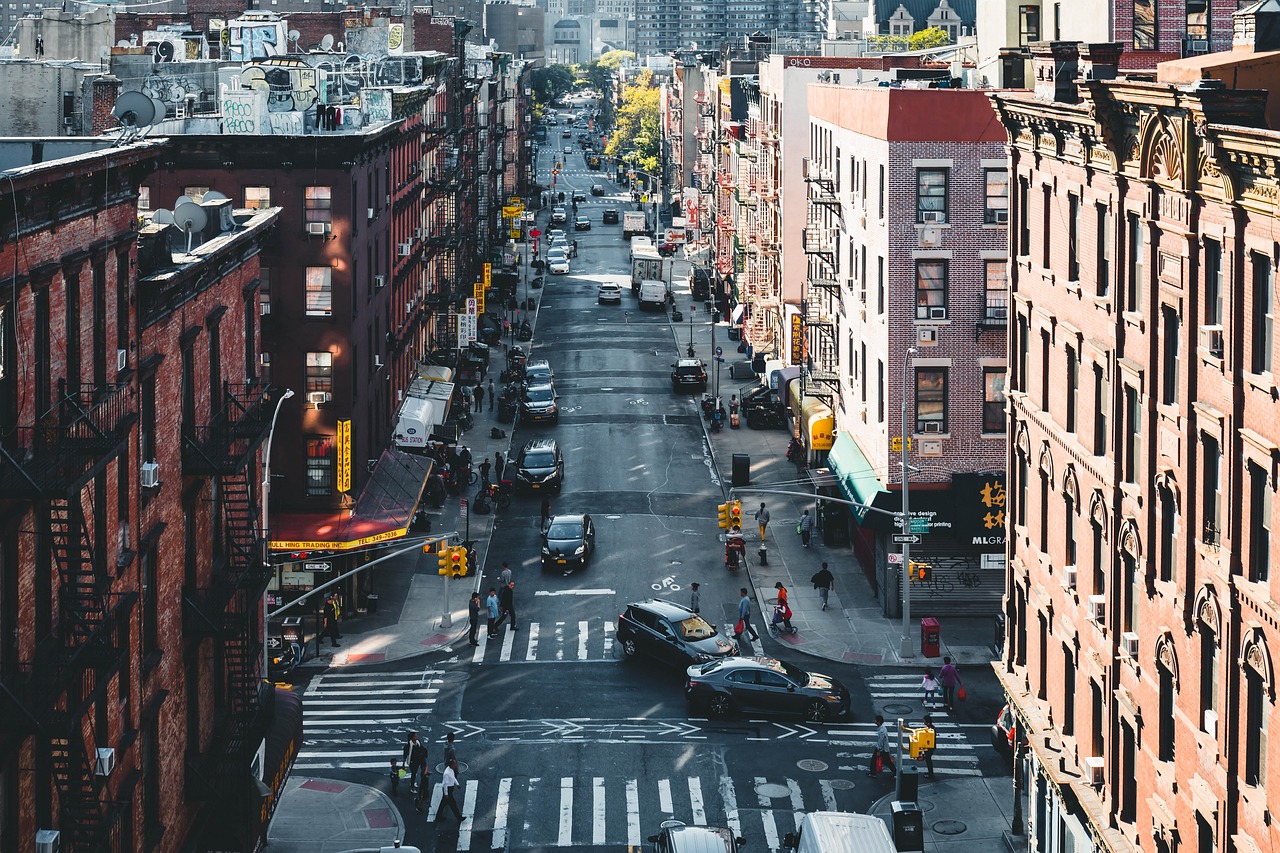
Step2 for How to Find an Apartment in NYC: Choose your neighborhoods
Choosing the right neighborhood is a crucial step when you face the question of how to find an apartment in NYC. New York City is a diverse metropolis, and each neighborhood has its style and character, so it’s important to understand the strengths and weaknesses of each neighborhood.
Firstly, you need to consider commute times and accessibility. New York City has an extensive public transportation system that includes subways, buses, and ferries. If you need to commute to Manhattan for work every day, choosing a neighborhood with easy access to public transportation and a shorter commute will greatly improve your quality of life. For example, Long Island City and Stuyvesant Heights are very popular neighborhoods because they offer quick and easy commuting options. It’s also important to consider whether or not you’ll need a parking space; if you have a car, parking may be more convenient in certain neighborhoods.
Secondly, the safety and living environment of the neighborhood is also a must-consider. You can review crime rate data to avoid the most dangerous neighborhoods in NYC or visit the community in person during the day and night to get a feel for its level of safety. A community’s living environment includes green spaces, recreational facilities, schools, and stores.
Thirdly, the amenities and lifestyle of the neighborhood are important criteria for selection. For example, people who live in the Williamsburg Apartments in NYC are known for its arts scene and rich nightlife, while the Upper West Side Apartments attracts families and professionals for its elegant surroundings and cultural amenities. Understanding a neighborhood’s scene will better finding an apartment in NYC that matches your lifestyle. Also, choose one neighborhood that includes various amenities for you to explore such as popular restaurants, live bars, diverse supermarkets, and other entertainment amenities options.
Step3 for How to find NYC apartments: Select Your Room Types
Choosing the right room type is an important thing for you to consider about how to find an apartment in NYC. This decision is not only about your living comfort, but it also affects your budget and your daily lifestyle. Here are some key considerations to help you make an informed choice in the process.
First, identify your needs and preferences. Consider whether you live alone or share a room, which will directly affect the type of room you choose. If you tend to live alone, you may choose a one-bedroom apartment or studio so that you can enjoy more privacy and independence. If you decide to live with roommates, you need to consider apartments with two or more rooms so that everyone can have their own private space. Shared apartments are also affordable options for students or short-term renters.
Next, rent varies greatly between different types of rooms. Studios and one-bedroom apartments usually range from $2800-$4500. It is more expensive than multi-bedroom apartments in New York but offers more privacy and independence. If you’re on a budget, sharing an apartment with someone else can significantly lower your cost of living because you can split rent and other living expenses. Before choosing, be sure to determine your monthly rental budget and make sure you take into account all additional costs, such as utilities, internet, and possible amenity usage fees.
Then, evaluate the size and layout of the room. NYC apartments are usually smaller in space, so it’s important to make the most of every square foot. When touring a room, take note of the actual size and layout of the room to see if it meets your needs. Also, find out if the apartment has enough storage space so you can keep your living space neat and organized. If you have roommates, make sure the common areas are large enough so that you don’t feel cramped when you all share them.
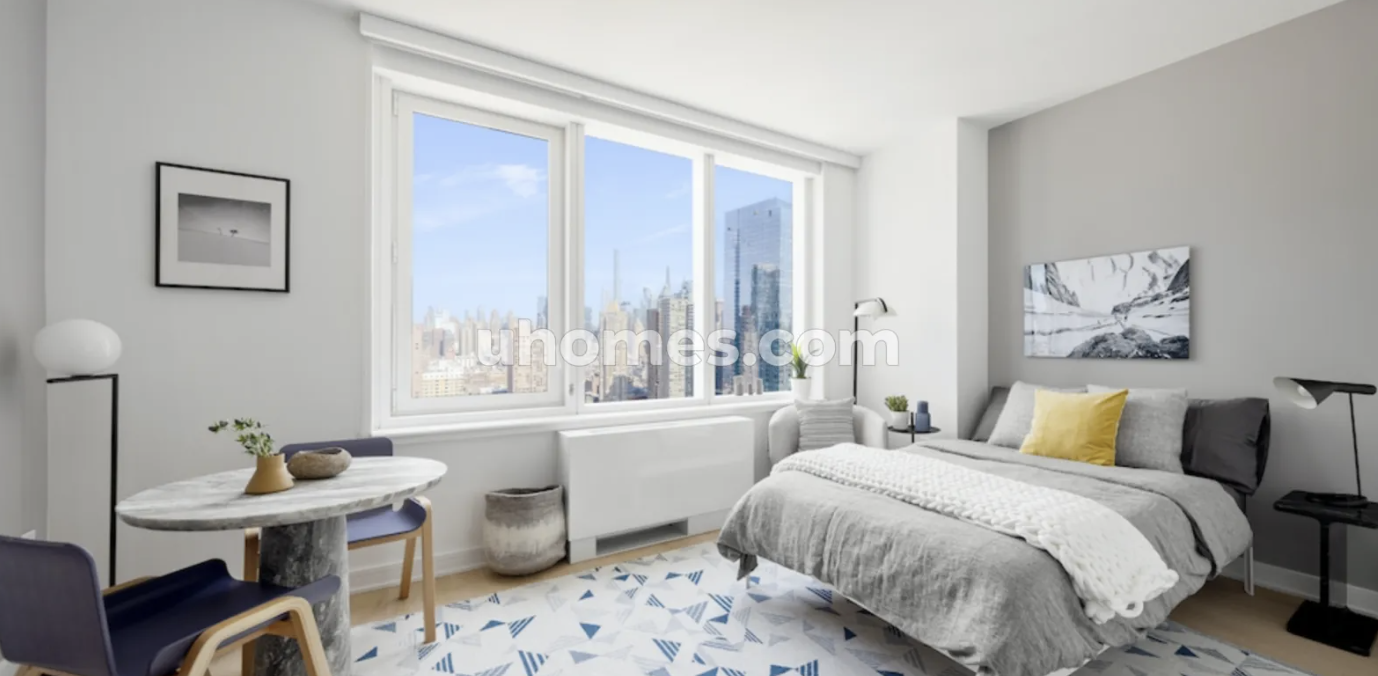
Step4 for How to find apartments in NYC: Know Your Amenities
Knowing the amenities of an apartment in NYC is crucial when you deal with how to find apartments in NYC. The apartments in New York City typically offer a variety of different amenities, ranging from necessities to luxurious conveniences.
First, it is essential to know if the apartment offers infrastructure. For example, whether the washer and dryer are in the apartment or you need to go to a shared community to use them; whether the kitchen is fully equipped with a refrigerator, microwave, oven, etc.; and whether the heating and air conditioning are fully installed, especially during the winter and summer months in New York City, are all essential factors to consider. It is also important to pay attention to the parking spaces of apartments, especially for residents with cars.
Next, the luxury apartments in NYC provide more amenities that are also worth considering, such as a gym, swimming pool and rooftop garden. These amenities not only enhance the quality of life but also provide a space for relaxation and recreation amid a busy city life. Some apartments will also offer 24-hour concierge services and doormen, which can go a long way in making things safe and convenient for residents.
It is also necessary to know if the apartment offers modern amenities such as high-speed internet and cable TV. These amenities have become especially important in today’s digital age, especially for those who work or study from home.
Finally, consider the apartment’s pet policy. For residents with pets, it is important to know if the apartment allows pets and if there are specialized pet facilities such as pet bathing areas and dog walking areas.
Step5 Best way to find apartments in NYC: Discover the Rental Websites
When you are worried about how to find an apartment in NYC, the best way to find an apartment in New York is to utilize online rental websites. These sites not only provide a wealth of information about the properties available but also provide detailed descriptions, pictures and rental conditions to help you better find the ideal place to live. Here are some rental websites that are popular in the United States:
Zillow:
Zillow is a well-known real estate website with a wealth of listing information. It not only provides rental listings but also covers information on properties for sale. Users can use the advanced search function on the website to filter out properties that meet their requirements based on a variety of criteria, such as location, price, room type and so on.
StreetEasy:
StreetEasy is a rental website that specializes in New York City and covers listings in every area from Manhattan to Brooklyn. Known for its detailed listing data and user-friendly interface that makes it easy for users to quickly find the right apartment.
uhomes.com:
uhomes.com caters to students and young professionals, offering rentals worldwide. For young people studying or working in New York City, uhomes.com is an excellent choice. Not only does the site have tons of details information about apartments such as photos, videos, the reviews from previous tenants to help you know the apartments more comprehensively. And our professional teams can ease your New York rental process.
Craigslist:
Craigslist is a classified ads website with many information on rentals. Despite its relatively minimalist interface, the diversity of listings on Craigslist allows users to find apartments of all price points and types.
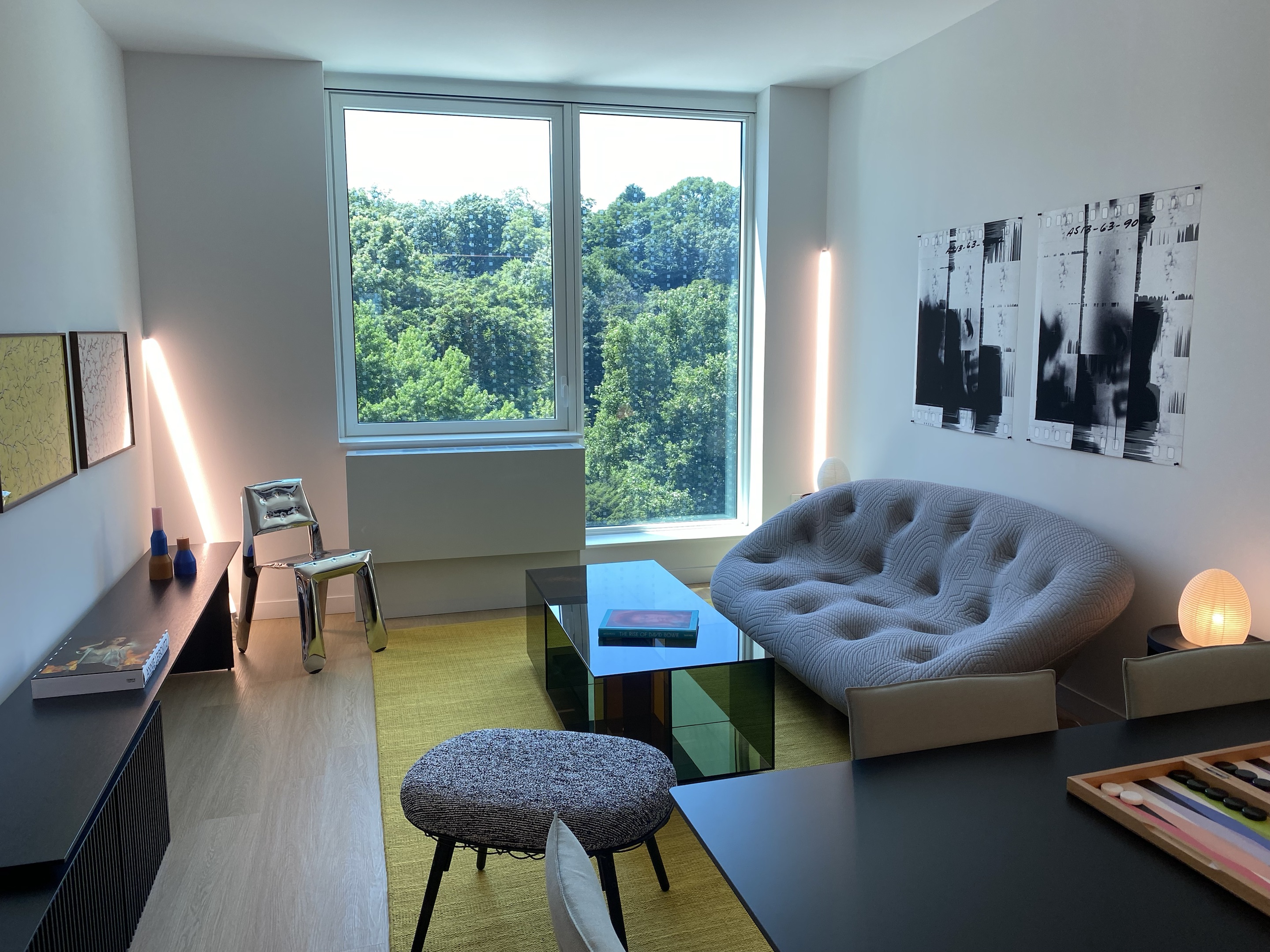
Step6 for How to find an apartment in New York: Schedule Your Appointment
This part is a significant process of how to find an apartment in NYC. Contacting your agent to schedule a viewing is an important step in finding an apartment in NYC. When making contact, it’s a good idea to prepare some key questions and a checklist for house rent ahead of time so that you can ensure you have a thorough understanding of the apartment. Here are some questions you may want to consider:
Maintenance:
Ask about the maintenance history of the apartment and whether it has been recently repaired or renovated. If it’s an older apartment, it’s especially important to know the condition of the plumbing, wiring, and other infrastructure. Knowing this information can help you avoid potential hassles and additional repair costs.
Neighborhood:
Ask how the apartment’s surroundings are, including the security situation, and nearby sources of noise (e.g., nightlife venues or traffic arteries). Knowing this information can help you determine if the neighborhood is a good fit for your lifestyle and needs.
Security measures:
Ask about security measures in and around the apartment building, including whether there is a 24-hour doorman, surveillance cameras, access control systems, etc. This information is crucial to the safety of your residence, especially in this large city.
Transportation and amenities:
Find out about transportation in the vicinity of the apartment, such as the nearest subway station, bus stops, and nearby shopping malls, supermarkets, restaurants, etc. These amenities have a great impact on the convenience of daily life.
Step7 for How to find NYC apartments: Prepare Your Documents
When you tackling the challenge of how to find an apartment in New York, having the necessary documents ready is a very important step. Here are some common documents and how you need to prepare:
Identification Documents:
Passport or Driver’s License:
This is the basic document that proves your identity and legal residency status. Passports and driver’s licenses are the most commonly used identification documents.
Visa or Green Card:
If you are an international student or non-U.S. citizen, a visa or green card may be required as additional proof.
Proof of Income Documents:
Recent pay stubs:
Most landlords require the most recent three months of pay stubs to prove your income.
Employer verification letter:
This letter should be provided by your employer proving that you work for the company and listing your position and annual income.
Tax statement:
If you are a freelancer or self-employed, you can provide the most recent year’s tax statement as proof of income.
Bank statements:
Providing bank statements for the last three months can prove your financial status and ability to pay.
References from previous landlords:
If you’ve rented before, you can provide references from previous landlords to prove that you’ve been a reliable tenant.
Credit report:
In the US, landlords usually check your credit report to assess your creditworthiness. You can obtain a detailed credit report from the major credit reporting agencies such as Experian, Equifax or TransUnion.
Application fee:
Check or money order:
Some landlords or management companies charge an application fee to cover the cost of credit checks and background checks. Have a check or money order ready to pay the application fee in a timely manner.

Step8 for How to find housing in NYC: Understand the Terms of the Rental
When you’re facing how to find an apartment in NYC, understanding the following key lease terms can help you:
Length of Lease:
Know the length of the lease, such as 9 months, one year, two years, or shorter leases.
Legal Rights:
Know your legal rights as a tenant, including rent adjustments, apartment maintenance responsibilities and tenant legal rights protection.
Lease terms:
Familiarize yourself with the specifics of your lease, including rent payment dates, advance notice periods and renewal options.
Deposit Requirements:
Understand what the deposit is for and the rules for returning it, including when it can be deducted.
Legal Requirements:
Know the legal requirements and procedures that tenants and landlords need to follow when signing a lease to ensure the legality and validity of the contract.

Step9 for How to find an apartment in NYC: Moving into Your Apartment
Moving into a new apartment in NYC can be a process full of anticipation and challenges. First, make sure to confirm the exact move-in date and related matters with your landlord or real estate management company. Secondly, if there are furniture or large items that need to be moved in, arrange for the help of a removal company or a friend in advance to ensure that the items can be transported to your new home without any problems. Thirdly, remember to check and record the condition of the existing apartment, including the state of the walls, floors and fixtures for future reference. In addition, if you need to set up Internet, TV or other useful facilities, contact the relevant service provider in advance to arrange for installation so as not to disrupt the normal flow of daily life. Finally, familiarize yourself with the surroundings and community facilities.
Tips for How to Find an Apartment in NYC
When you’re having difficulty finding an apartment in New York, here are a few tips to help you have no trouble finding the right place to live:
Start Early:
NYC apartments are highly mobile and it is recommended to start your NYC housing search in early April. This allows enough time to view multiple options and make an informed decision.
Be Flexible:
Be prepared for possible competition and quick changes. Sometimes, even if you have your eye on an apartment, it may be rented by someone else before you because of the competitive market.
Use Your Network:
To utilize more resources to find an apartment in NYC. Ask your friends, and colleagues who are familiar with New York to help you decide on the apartment.
FAQ
No. uhomes.com can help you find an apartment in NYC in an easy process. We provide a range of apartments for rent in NYC for different locations, room types, and amenities. You can find your apartment in NYC based on your needs and preferences.
To find an apartment in New York without a job consider the following: 1. Prepare proof of funds for rent and deposit in advance.2. Consider looking for options to share an apartment to reduce financial stress.3. Provide a guarantor or additional deposit to increase the chances of a successful rental.
Renting an apartment in New York as a foreigner, you first need to prepare a valid visa and identification documents. Then, search for a suitable apartment, either using a real estate website like uhomes.com or the help of a broker. Confirm the rent, terms of the lease and payment options, which usually require a credit history or security deposit. Finally, read all the terms carefully and understand the tenant’s rights and responsibilities before signing the lease agreement.
Top Picks: Best Neighborhoods in Queens for Students
Queens, a major New York City borough, is known for its diversity…
Top 10 Best Neighborhoods in Manhattan For Students
There are many choices of the best neighborhoods in Manhattan in the…
Uncovering Top 10 Student Housing in New York
New York is famously known as the "city that never sleeps". It…






